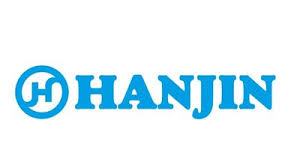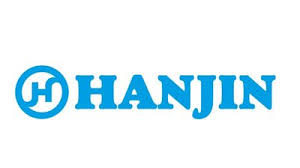
Among the likely victims of the collapse of South Korean container shipper Hanjin Shipping were Christmas shoppers and Korean correspondents.
Industry data provider Alphaliner placed Hanjin at the seventh largest globally, with 98 ships and a 2.9 percent market share and hence the company, which filed for court receivership on August 31, was no minor industry player. In comparison, with around 622 ships and a 15.4 percent market share, the largest is APM-Maersk.
Reuters reported that amid expectations the company would likely end up being liquidated, a South Korean court request to provide the shipper with additional funds to resolve issues with an estimated $14 billion worth of stranded cargo was balked on Wednesday by Hanjin Shipping's lead creditor bank, Korea Development Bank.
The court said the amount was inadequate and that it wasn't clear when that plan would be executed even as Hanjin's parent company, Hanjin Group, planned to raise around $90 million to help cover the cost of unloading cargo.
That has left a lot of uncertainty over how long Hanjin's ships will sit idle.
There’s a good chance that Hanjin's standstill means it might be even more scarce than usual this year even though it might be too early to know yet what this Christmas' "it" toy will be. The product most impacted as retailers awaited their shipments of Christmas goodies would be toys, analysts at Citigroup said.
Even though department stores appeared to have been reducing their exposure to Hanjin over the past few months, also likely to be impacted are "softlines," or retail inventory that doesn't usually come in a box, such as linens or personal items such as gloves, Citi said in a research note.
"There may be some exposure for branded goods that the department stores purchase as they are unsure at this point which of their vendors may use Hanjin," Citi however added.
Citigroup noted that as shipping prices between Asia and the U.S. rose as much as 40-50 percent in the wake of the bankruptcy protection filing, companies, particularly those relying directly on Hanjin to move their goods, may see some pressure on their gross margins.
Since the shipping line was part of an alliance of shippers, it may have been carrying cargo that was sent on another carrier and hence some companies may not yet be aware if they're exposed to Hanjin.
Since, exporters and importers tried to figure out where their cargos and products were, Hanjin's filing meant there was "a bit of chaos" ahead legally and operationally, said Philip Damas, a director at Drewry, an independent maritime advisor.
He said that as ports refused to release cargo from Hanjin ships unless they were paid, delivery of many products would likely be delayed and some retailers would be badly affected by a shortage of inventory.
However this was a possibility that Citigroup was less concerned about. The holiday inventory shortfalls were unlikely as retailers still had enough time to back-fill the products stuck on the shipping line's vessels and Hanjin Shipping's parent was trying to raise funds to unload the cargo from its ships, the bank's analysts said.
(Source:www.cnbc.com)
Industry data provider Alphaliner placed Hanjin at the seventh largest globally, with 98 ships and a 2.9 percent market share and hence the company, which filed for court receivership on August 31, was no minor industry player. In comparison, with around 622 ships and a 15.4 percent market share, the largest is APM-Maersk.
Reuters reported that amid expectations the company would likely end up being liquidated, a South Korean court request to provide the shipper with additional funds to resolve issues with an estimated $14 billion worth of stranded cargo was balked on Wednesday by Hanjin Shipping's lead creditor bank, Korea Development Bank.
The court said the amount was inadequate and that it wasn't clear when that plan would be executed even as Hanjin's parent company, Hanjin Group, planned to raise around $90 million to help cover the cost of unloading cargo.
That has left a lot of uncertainty over how long Hanjin's ships will sit idle.
There’s a good chance that Hanjin's standstill means it might be even more scarce than usual this year even though it might be too early to know yet what this Christmas' "it" toy will be. The product most impacted as retailers awaited their shipments of Christmas goodies would be toys, analysts at Citigroup said.
Even though department stores appeared to have been reducing their exposure to Hanjin over the past few months, also likely to be impacted are "softlines," or retail inventory that doesn't usually come in a box, such as linens or personal items such as gloves, Citi said in a research note.
"There may be some exposure for branded goods that the department stores purchase as they are unsure at this point which of their vendors may use Hanjin," Citi however added.
Citigroup noted that as shipping prices between Asia and the U.S. rose as much as 40-50 percent in the wake of the bankruptcy protection filing, companies, particularly those relying directly on Hanjin to move their goods, may see some pressure on their gross margins.
Since the shipping line was part of an alliance of shippers, it may have been carrying cargo that was sent on another carrier and hence some companies may not yet be aware if they're exposed to Hanjin.
Since, exporters and importers tried to figure out where their cargos and products were, Hanjin's filing meant there was "a bit of chaos" ahead legally and operationally, said Philip Damas, a director at Drewry, an independent maritime advisor.
He said that as ports refused to release cargo from Hanjin ships unless they were paid, delivery of many products would likely be delayed and some retailers would be badly affected by a shortage of inventory.
However this was a possibility that Citigroup was less concerned about. The holiday inventory shortfalls were unlikely as retailers still had enough time to back-fill the products stuck on the shipping line's vessels and Hanjin Shipping's parent was trying to raise funds to unload the cargo from its ships, the bank's analysts said.
(Source:www.cnbc.com)














